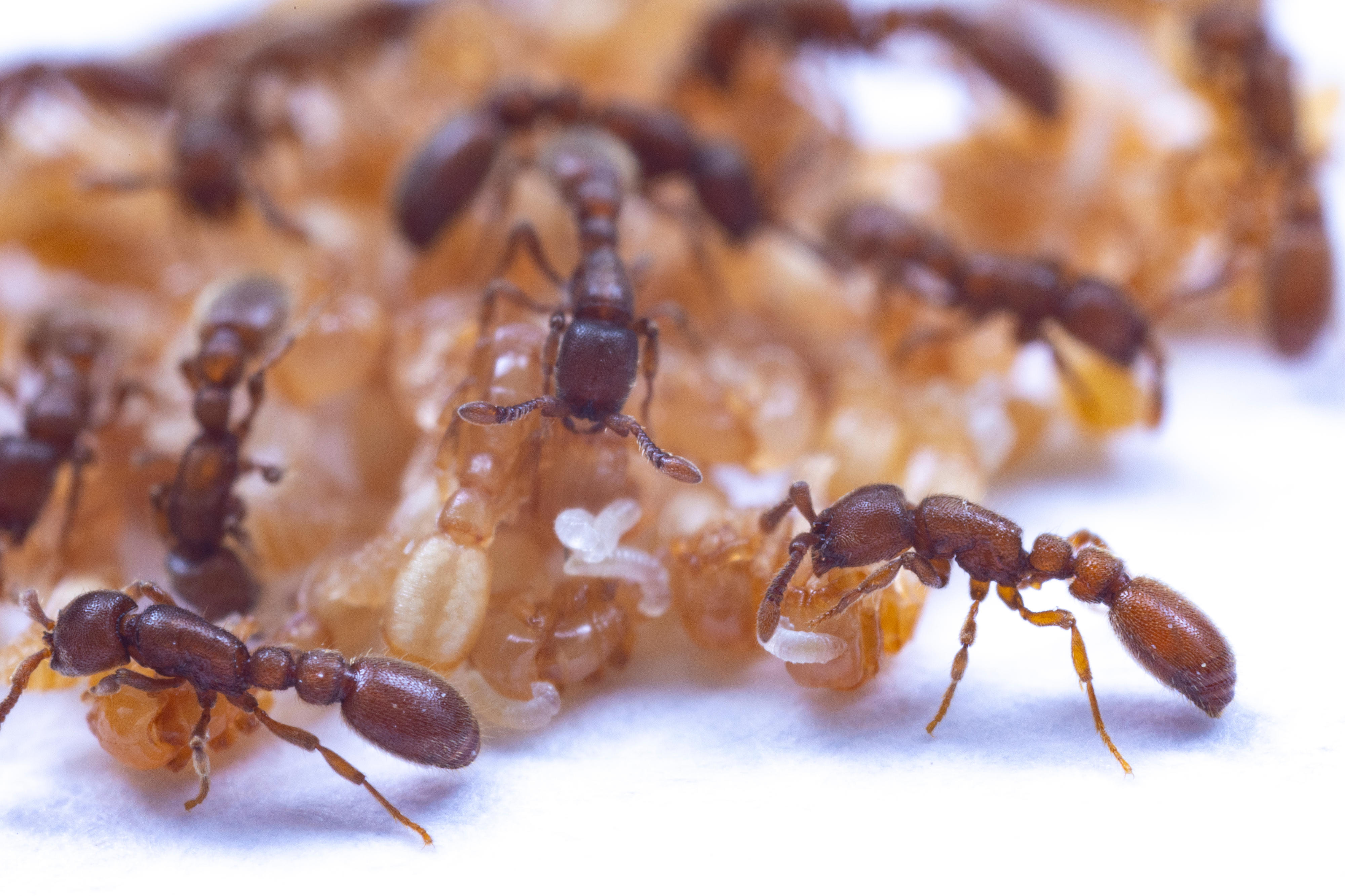News release
From:
Animal behaviour: Ant pupae secrete ‘milk’ (N&V) *IMAGES*
Ant pupae produce a milk-like substance that is consumed by other ants and improves the fitness of the colony, a Nature paper reveals. The study has important implications for our understanding of how insect societies evolved and are organized.
Ant eggs hatch to form larvae, which pupate before emerging as adults. Entomologists presumed that the pupae do not interact with the colony, but Daniel Kronauer and colleagues show that this is not the case. Just before hatching, pupae secrete large amounts of a nutrient-rich substance, comparable to mammalian milk, which is either consumed directly by adult ants or by the developing larvae, which are placed on the pupae by the adults. The behaviour plays a vital role in colony survival. Larvae that cannot access the secretion exhibit stunted growth and poor survival, while pupae left to stagnate in their own secretions develop fungal infections and die. The fluid also contains hormones and psychoactive substances, and so may influence the behaviour and physiology of colony members.
This previously unobserved behaviour was missed because scientists focused on ant colonies, rather than individuals. In a colony, the pupae secretions never accumulate because it is quickly consumed, so it was only when the authors studied isolated pupae that the fluid became apparent. The research also lends weight to an old theory that posits a link between the evolution of ant eusociality and the interdependence of nutrition between colony members. “This nutrition theory fell out of favour in the late twentieth century, when explanations of social evolution in ants and other social insects, as provided through the lens of population genetics, grabbed the limelight,” say Patrizia d’Ettorre and Kazuki Tsuji in an accompanying News & Views article, “however, the nutrition theory is regaining prominence this century,” they add.
Multimedia







 International
International



